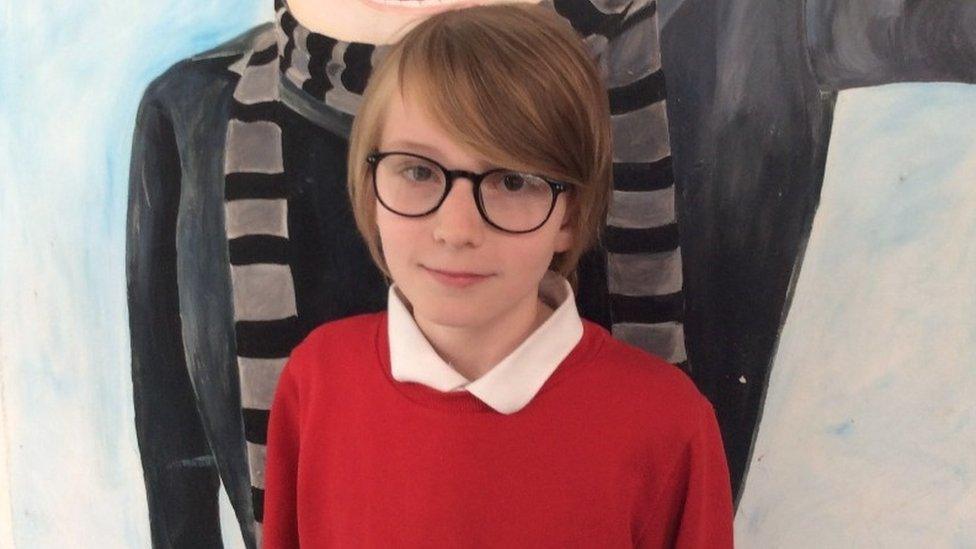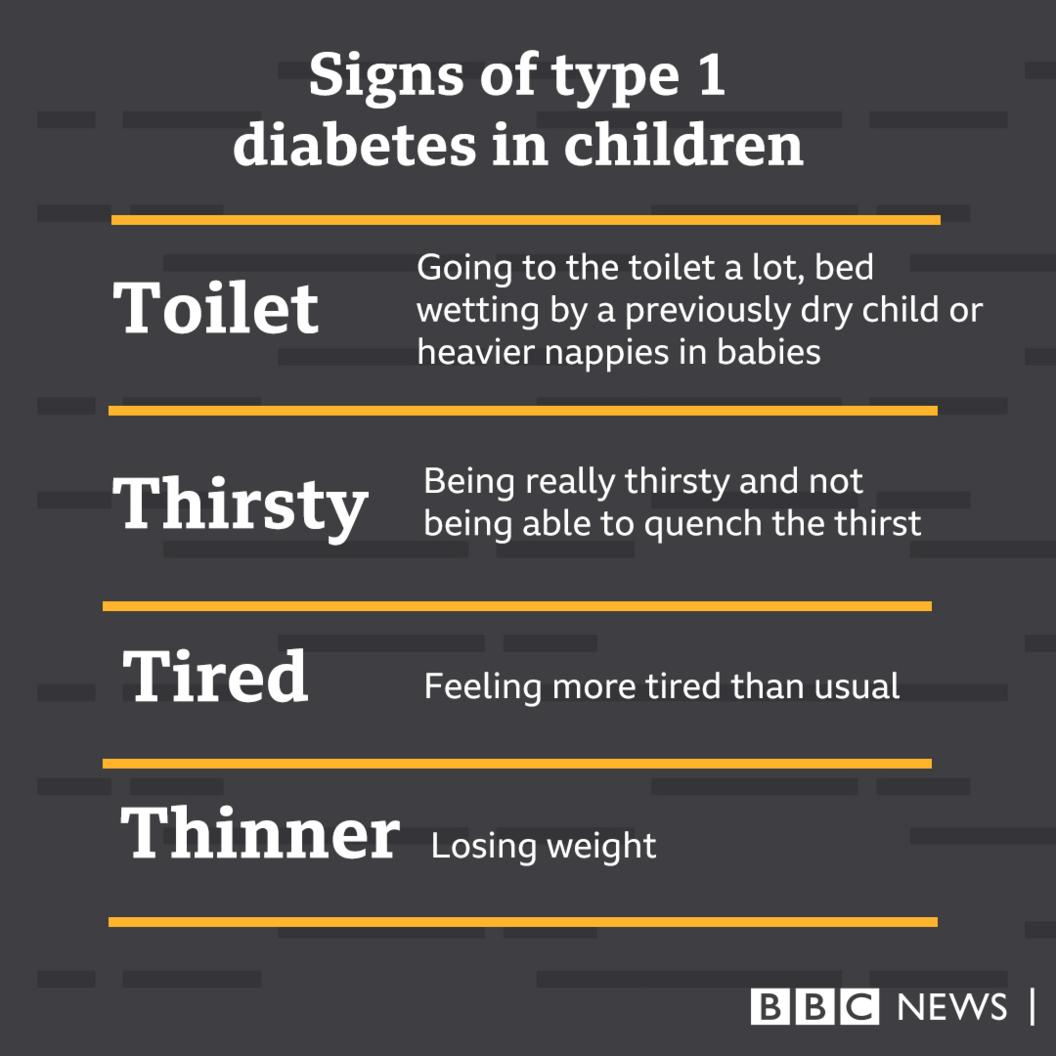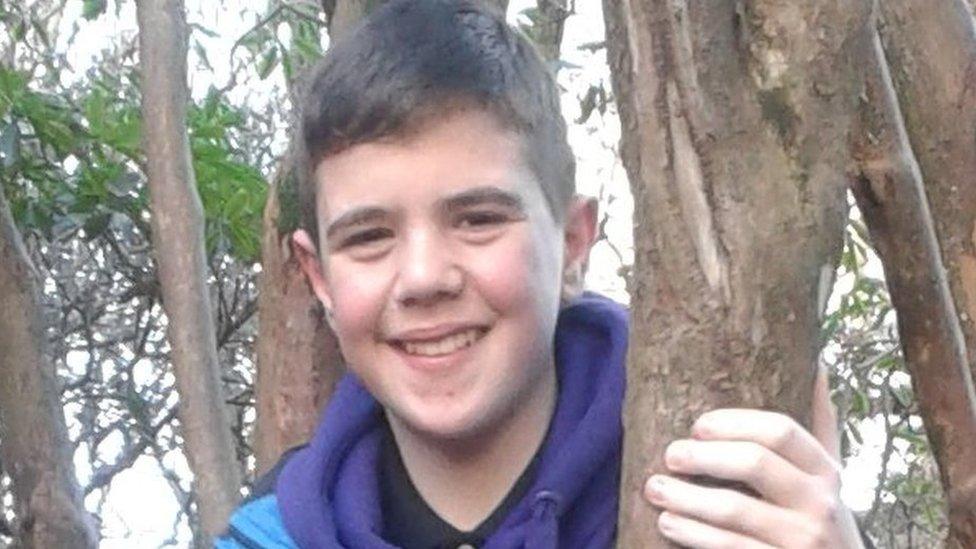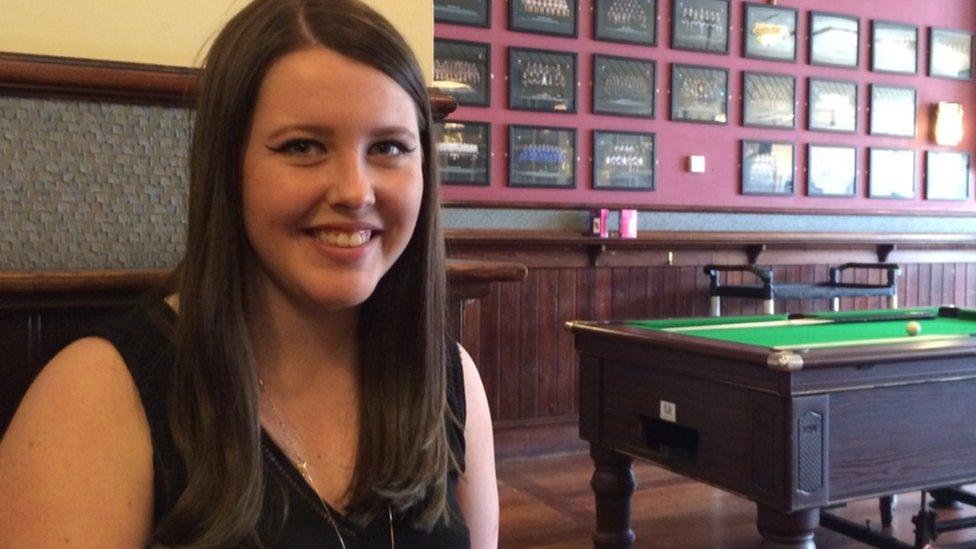Diabetes: Kayden Hall, 11, died from undiagnosed condition
- Published

Kayden's mother said he was a "bright boy" who "made people laugh" and was "really popular in school"
An 11-year-old boy who died after being found unresponsive in bed had undiagnosed type 1 diabetes, an inquest has heard.
Kayden Hall, from Cwmbran in Torfaen, died at Cardiff's University Hospital of Wales on 5 June 2020 with diabetic ketoacidosis, external.
The dangerous condition occurs when diabetes is undiagnosed and the body starts to run out of insulin.
Newport Coroner's Court heard signs "can be subtle and go unnoticed".
Senior coroner for Gwent Caroline Saunders recorded a conclusion of death by natural causes.
She also raised concerns about access to medical services during the pandemic, saying what was available had been "poorly communicated".
The court heard evidence from a police statement from Kayden's mother Melanie Hall who said her son became unwell on 1 June.
She said he told her he was "struggling to go to toilet and his chest was tight".
The court heard over the next few days Kayden ate little apart from some Weetabix and was sick on a number of occasions which was "black and watery".
Ms Hall said she did not think she would be able to get an appointment for her son because of restrictions caused by Covid-19.
By 4 June, Kayden was still unwell and Ms Hall said when she "went upstairs, he was laid on his bed, under the covers - I could see his eyes were open and I put my hand on his shoulders to wake him up".
When she could not wake him, the family called 999.
The court heard Ms Hall told police officers who arrived at the scene that Kayden had not been to the GP as she believed she would not be able to get an appointment because of Covid restrictions. "There was no way I could get an appointment, he didn't have a temperature," she had said.
Kayden was taken to the University Hospital of Wales where doctors believed his admission was due to "severe diabetic ketoacidosis, which had led to cardiac arrest".
A statement by the intensive care consultant who treated Kayden, Dr Anna Barrow, said his glucose levels on arrival were 50 - the court heard a normal level was about five.


'Died in her arms'
A CT scan showed what was described as an "unsurvivable brain injury".
Following discussions with Ms Hall the ventilator was turned off.
"He died in her arms in the paediatric intensive care unit," Dr Barrow said in her statement.
Dr Andrew Bamber, a consultant paediatric pathologist at the North Bristol NHS Trust, who reviewed Kayden's death, said there were a number of contributory factors that led to his death.
He said that meant it was "hard to give a turning point" of when earlier intervention might have saved his life.
A cause of death was given as hypoxic brain damage, caused by diabetic ketoacidosis with contributory factors of aspiration and inflammation in his pancreas.
Kayden had "no significant medical history" apart from using inhalers for asthma, the inquest was told.
Dr Bamber explained that signs of type 1 diabetes, such as weight loss and being more thirsty, were difficult to spot in children.
But he said it was likely Kayden "had diabetes for much longer" than when the more severe symptoms of diabetic ketoacidosis appeared in the days before his death.
'No signs'
The court also heard from Sara Davies, a family engagement officer based at Coed Eva Primary in Cwmbran, where Kayden had attended for the whole of his primary education.
She said she visited the family every week during the pandemic, as well as every day when Kayden was in school.
She said she "saw nothing" that worried her and that there had been "no signs".
She last saw Kayden on the Wednesday before he died and had taken food to the family.
Coroner Caroline Saunders said Kayden was an "undiagnosed diabetic and died from the effects of diabetic ketoacidosis".
She recorded a conclusion of death by natural causes and sent her "sincere condolences to the family".
In her statement, his mother described Kayden as a "bright boy" who "made people laugh" and was "really popular in school".
Dai Williams, director of Diabetes UK Cymru, said: "During lockdown, we were concerned that fewer cases were being diagnosed in children in Wales and have intensified our campaign to reach more people and ensure that the symptoms become common knowledge.
"Diabetes is serious, can be life-threatening if not diagnosed and treated. Most people seem to think that this only happens to others, but it happened to me and I almost lost my son - better safe than sorry so if you're worried, check it out."
- Published11 July 2017

- Published7 April 2016
